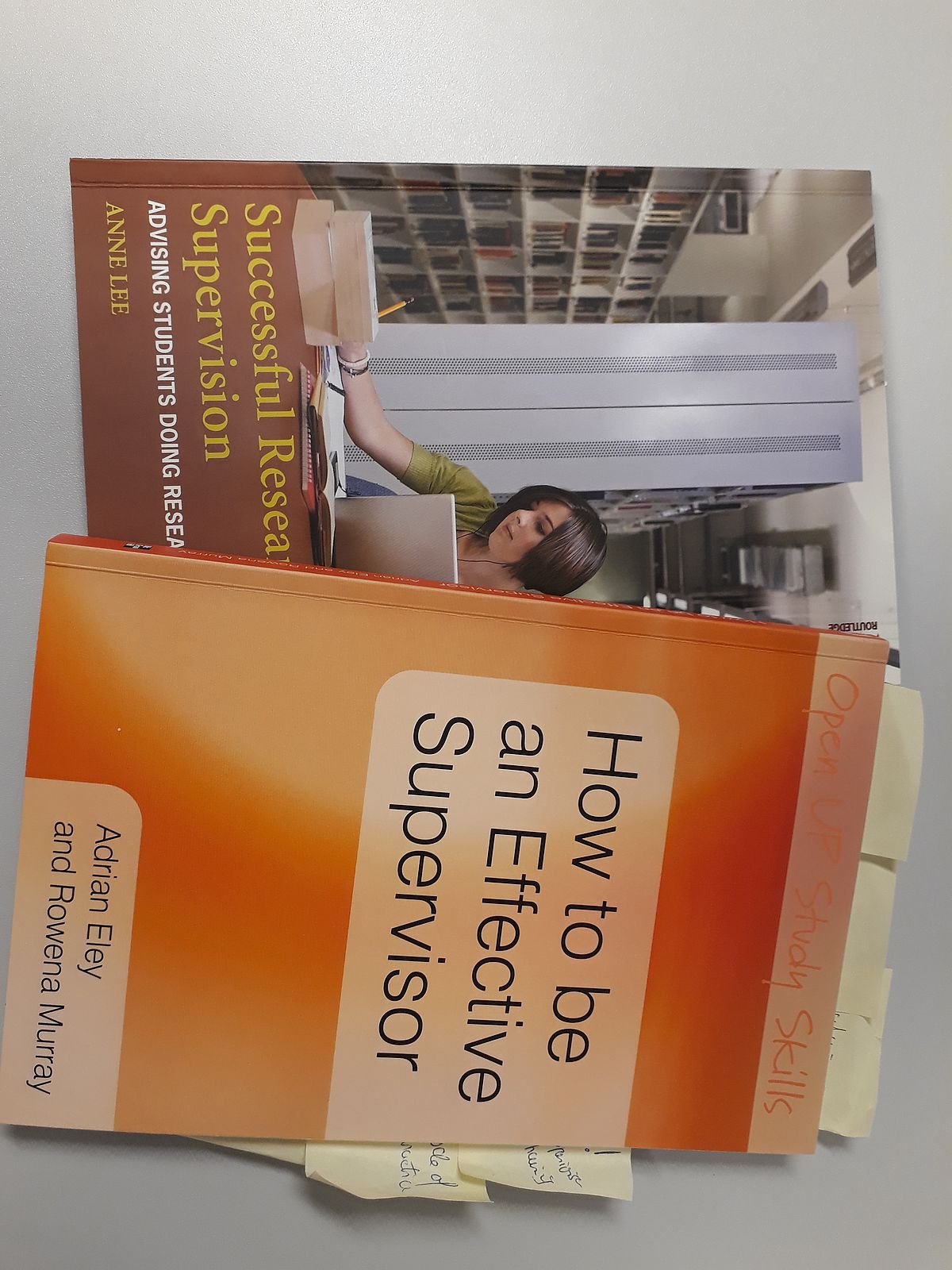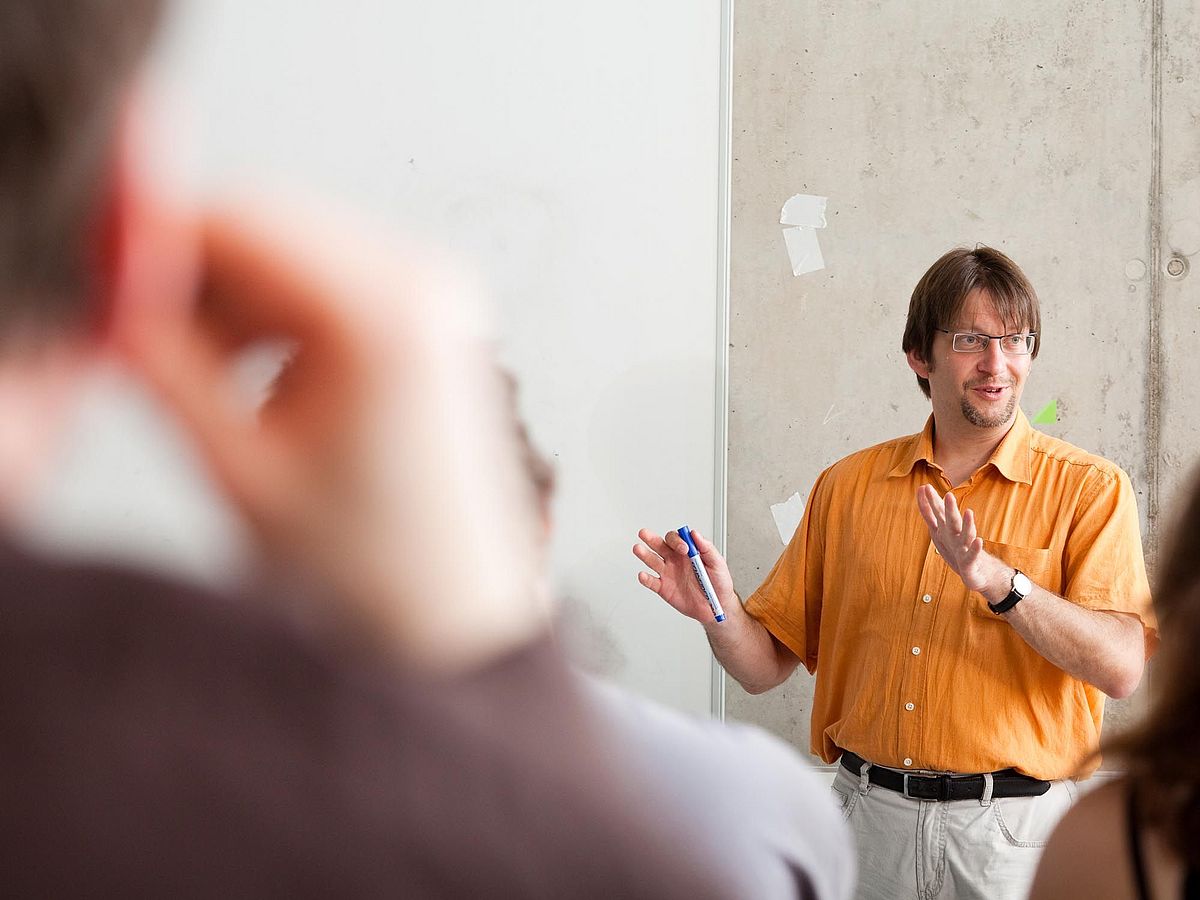Doctoral supervision
Doctoral candidates pursue their own independent scientific research while being supervised by experienced researchers. The quality of this supervision has a direct impact on the success of a doctoral project. Good supervision requires joint project planning including a schedule and concrete milestones, regular supervision meetings, and the integration of the candidate into an adequate scientific environment. The aim is a supervisory relationship that is characterised by trust and that supports the doctoral researcher's academic independence.
At the University of Bremen, the supervision of doctoral theses is regulated by the doctoral regulations(“Promotionsordnung”) of the respective faculties. Additionally, doctoral researchers and supervisors are encouraged to actively discuss and plan their cooperation. BYRD offers various literature recommendations as well as practical guides that can be downloaded directly on this site.
Doctoral candidates are also welcome to register for our individual consultations to discuss their current situation and to receive advice and encouragement on how to improve the collaboration. Furthermore, our workshop program provides support when facing challenges concerning your workflow and motivation, the maybe unknown German academic environment or communication with your supervisor.
Once a year BYRD offers a workshop on the topic of good supervision for doctoral supervisors. Furthermore, short online workshops on various aspects of doctoral supervision provide regular impulses.
Call open for the Award 2025
The call for the award for outstanding doctoral supervision 2025 is open now. Please find further information on how to hand in your nominations here.
Outstanding Supervision
Every two years, the University of Bremen honors two university professors for their outstanding doctoral supervision. The Alumni network supports the award with a prize money of 2000 Euro for each awardee.
The award winners 2019:
Prof. Dr. Iris Pigeot
Prof. Dr. Andreas Fischer-Lescano
The award winners 2021:
Prof. Dr. Rolf Drechsler
Prof. Dr. Heiko Pleines
The award winners 2023:
Prof. Dr. Nicole Megow
Prof. Dr. Kerstin Martens
Resources for doctoral candidates and supervisors
- Qualitätssicherung der Promotion an der Universität Bremen (May 2015, in German)
- "Shaping a Doctorate Together" - Guidelines for Supervisors (3rd edition, 9/2018) © Qualitätszirkel Promotion
- "Shaping a Doctorate Together" - Guidelines for Doctoral Candidates (3rd edition, 9/2018) © Qualitätszirkel Promotion
- Doctoral Supervision. Recommendations and good practice for universities and doctoral supervisors. UniWiND Publications Issue 4 (2015).
- The UCL Good Supervision Guide for new and experienced research supervisors.
- When a Chinese PhD student meets a German supervisor. Tips for PhD beginners. Keshun Zhang & Shuang Song, University of Konstanz, 2016.
- The Link EDU-RES Toolbox for doctoral candidates pursuing a binational/ joint degree offers advise on "How to work successfully with your supervisors"

Further reading:
- Eley, Adrian and Rowena Murray. 2009. How to be an Effective Supervisor. Open University Press. [e-book available via university intranet]
- Lee, Ann. 2012. Successful Research Supervision. Advising Students Doing Research. Routledge. [borrow from university library]

Supervision agreements
Supervision agreements allow doctoral candidates and their supervisors to clarify roles and expectiations on both sides and to provide them with a clear idea of the progression of the project. Such an agreement offers a space to fixate the corner stones of their cooperation so as to make the common ideas and goals for the project transparent to both parties.
A template for a supervision agreement can be downloaded here.

Clarifying expectations
"A standardisation of doctoral supervision is not possible. Instead, it needs to take into account the specific circumstances and needs of a candidate individually for each doctorate. The required scope and suitable forms of support as well as the mutual rights and obligations [...] should be agreed in writing at the beginning of the doctorate, constantly reviewed and adapted as needed during the whole doctoral phase."
Carmesin, Berit et al. (2015): Doctoral Supervision. Recommendations and good practice for universities and doctoral supervisors. UniWiND Publikationen.

Managing the relationship
"The supervisor-doctoral student interpersonal relationship is important for the success of a PhD-project. Therefore, information about doctoral students' perceptions of their relationship with their supervisor can be useful for providing detailed feedback to supervisors aiming at improving the quality of their supervision."
Mainhard, Tim; van der Rijst, Roeland; van Tartwijk, Jan & Theo Wubbels (2009): "A Model for the Supervisor-Doctoral Student Relationship". Higher Education 58 (3), 359-373.
Doctoral candidates as employees
In Germany, doctoral candidates are often employed as research assistants at the university. If this is the case, their supervisor may very well at the same time be their superior. In such cases, it is important to clarify the roles. Are we talking about the dissertation or project- and teaching-related tasks? The staff board can be contacted with questions related to employment and contracts.
Need an outsider's perspective?
A PhD is a special situation in which it is sometimes helpful to talk to someone with an outsider's perspective. BYRD offers consultations on different aspects of a PhD and PhD supervision. In certain situations, you can seek advice from the Advisory and Information Centre against Discrimination & Violence – Expertise and Conflict Counseling.
The Staff Board (in German) is a body of elected staff representatives of the University of Bremen. Its members advise and represent employees in their employment- and workplace-related concerns.
The Advisory and Information Centre against Discrimination & Violence – Expertise and Conflict Counseling is a specialist counseling center for dealing with conflicts, discrimination, and violence in the field of education, studies, and employment. Their offer includes advice and information, events and training.


